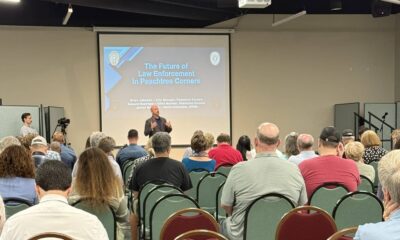Business
From the Corporate World to Full-time Real Estate Investor and Author with his Son
Published
4 years agoon

On this episode of the Capitalist Sage, Karl Barham and Rico Figliolini are joined by Rudely Kelly and his son, Jayden. Rudley is a real estate investor, a realtor and an author who with the help of his son, wrote “Real Estate with my Daddy”, a children’s book that explains the ins and outs of real estate to kids. Listen in on the inspiration behind this book and hear Rudley’s expert insight into the real estate industry.
Book on Amazon
Website: K1HomeSolutions.com
Phone Number: 404-877-8088
Social Media: @RudleyKelly
“I’ll have a conversation with the seller and just get an understanding of what is their true
Rudely Kelly
motivation, what are they looking to gain out of selling this property? Because at the end of the
day, you don’t want to walk away with someone feeling as if they were taken advantage of, or
didn’t understand the process or anything like that. For me, I like to sleep well at night and I
want to make sure whoever I’m dealing with sleep well at night as well.
Timestamp:
[00:00:30] – Intro
[00:03:09] – Inspiration Behind the Book
[00:04:03] – Rudley’s Background
[00:05:26] – Educating Children in Real Estate
[00:08:36] – Finding Properties
[00:09:56] – Next Steps in a Property
[00:11:30] – Making House Flipping Profitable
[00:12:54] – Working with Contractors
[00:15:47] – Exiting Properties
[00:17:07] – Pros and Cons of Airbnb
[00:18:07] – How COVID has Impacted Business
[00:19:50] – Next steps for Rudley and Jayden
[00:26:22] – Closing
podcast transcript
Karl: [00:00:30] Welcome to the Capitalist Sage Podcast. We’re here to bring you advice and
tips from seasoned pros and experts to help you improve your business. I’m Karl Barham with
Transworld Business Advisors. And my co-host is Rico Figliolini with Mighty Rockets, Digital
Marketing, and the publisher of the Peachtree Corner magazine. Hey Rico, how’re you doing
today?
Rico: [00:00:47] Good karl. It’s a great day.
Karl: [00:00:49] Absolutely. Why don’t you introduce our sponsors for today’s episode?
Rico: [00:00:53] Sure. Our sponsor is Hargray Fiber. They are an internet company that
provides services to small and large companies. And they’re a main component in every
community they go into. So we’re excited to have them as our sponsor and not only for this
show, but our other podcasts that we do and also support our Peachtree Corners magazine. So
what I want to tell you is that they have the Hargray Economic Stimulus plan, their own stimulus
plan. So if you qualify for it, you get one year free business, internet, and phone service. So you
should check them out and go to Hargray.com/business/economic-stimulus. Great partner to
have. They are not like the cable company and they’re there when you need them. So check
them out. Thank you Hargray.
Karl: [00:01:50] Thank you so much, Rico for introducing our Sponsor Hargray today. Today’s
guest is Rudley and Jayden Kelly. Rudley’s a real estate investor, a realtor and an author. And
today we’re going to talk a little bit about how to teach your children about investing. Real estate
investing, other types of investments, to our children. You’ve recently just launched and
published their first book, I’ll kind of show it here. This is “Real Estate with my Daddy”. It’s
available on amazon.com. A very fun book for you to go through with your children and talk
about real estate. So we’ll talk a little bit about this today and share some of the thoughts around
that. Hey Rudley, hi Jayden, how’re you guys doing?
Rudley: [00:02:34] Good, doing great. How are you all doing?
Karl: [00:02:36] Oh, we’re blessed. Thank you so much. And thank you for taking time out of
your busy schedules to be on the podcast with us today. Jayden how was school today?
Jayden: [00:02:48] Good.
Karl: [00:02:49] That’s good. You’re probably pretty used to doing your schoolwork and keeping
up with stuff. How did you get time to write a book with your dad?
Jayden: [00:03:00] Cause we were just home one Saturday afternoon. Went shopping, so we
just wrote a book for fun.
Karl: [00:03:09] Oh, that’s fabulous. Rudley, why don’t you tell us a little bit what sparked you for
doing that? Writing this book and introducing it to everyone.
Rudley: [00:03:19] Yeah, first and foremost,I appreciate you guys inviting us on this podcast.
It’s a great venue here to kind of talk about business. But yeah, the whole premise behind the
book was to just help share the knowledge of real estate amongst, you know, younger children.
Kind of similar to the opportunity I had when I was younger to learn from my older brothers and
sisters and older cousins that invested in real estate. So my son, you know, obviously he’s been
coming with me on looking at various properties, distressed properties and whatnot, since he’s
been about two years old, right? And so we just wanted to kind of put it in the language of a
child for them to get a high level grasp of what investing in real estate is. And you know, we kind
of wrote it together and came up with something pretty cool.
Karl: [00:04:03] Yeah, it’s definitely fabulous. Why don’t I start by, how did you get into real
estate and what made you, what’s your background and what brought you to where, what you’re
doing today?
Rudley: [00:04:14] Yeah, so I started real estate. I’ve been heavily investing in real estate in the
past six years, but really bought my first property about 14, 15 years ago. And what kind of got
me started in that is, you know, kind of what I was mentioning a little bit prior to that I had some
good role models. My brothers, sisters, some older cousins, my parents, that all had some type
of footing within real estate. So my thing as a younger adult always wanting to try to figure out
how do I accelerate that and how can I get to that level sooner. So it started off with me buying
my first property right out of college. Primarily because I didn’t want to move back home with my
parents at that time. So that was my motivation at the time, but kind of snowballed from there.
Got my real estate license and you know, invested in quite a bit of education on the flipping side
of the business. And just kind of took it from there.
Karl: [00:05:04] Oh, that’s fabulous. I wonder Jayden, what’s your favorite part of working with
your dad when looking at properties?
Jayden: [00:05:14] I get to help him build things.
Karl: [00:05:15] What’s your favorite? Is there a particular room that you work on a lot? Kitchen,
bath, living room?
Jayden: [00:05:22] I usually work downstairs.
Karl: [00:05:26] Oh, that’s fabulous. So as you started getting started in this, what are some of
the things you found that when trying to help educate your children about investing, you found
were some of the things, the challenges in doing that?
Rudley: [00:05:42] You know, I guess some of the challenge is in maybe some of the language
and the dynamics of what real estate is. So I think for me, what helped educate Jayden on it and
the rest of my children as well is just, you know, putting it in as, mostly in terms as possible. And
trying to equate it to maybe toys or things that they play with and understanding buying
something versus investing and saving and those types of things. But I think the biggest
challenge is just putting it in a language that resonates with them best. So it was fun for us to
write this book together so he can kind of help me along as I’m writing it to say, does that make
sense? Checking in with them and you know, getting a good understanding that you know, this
is something that a seven-year-old can understand
Karl: [00:06:25] Jayden, what do your friends think about you helping your dad out?
Jayden: [00:06:30] They haven’t all checked the book out yet.
Karl: [00:06:35] They haven’t checked it out? Well, we have to do something to help get them
the book a little quicker and get them into schools and everything else. One of the things that’s
always fascinating, there’s an aspect of this that goes around wealth building. Creating a legacy
and generational wealth. That, there has been a lot of discussion around that. What place, what
do you recommend for parents to start instigating that curiosity in their children? What are some
of the things you’ve been doing and what would you recommend to other parents that want to
get their kids interested earlier into business and/or investing.
Rudley: [00:07:14] Yeah. I mean, I think some of the biggest things is truly just exposing him to
it first, right? I think, exposure is the key. I know growing up you know, as looking at my parents
older, typically as parents, you’re like, you know, this has grown folks business. Or this is, you
know, this is for adults, but I tend to not do that typically. I want to bring them into the fold. I want
to show them like, all right, this is what this costs. You know, how do you think we should go
about paying for this? You know, if you’re having discussions over bills or things like that. Once
you get a little bit older, maybe not Jayden’s age, but you know teenagers are a little bit older,
like sit down at the table with them and go over the bills and show them where their account is
coming from or where the funds are coming from and how to save and do those types of things.
So I think number one is exposure. Don’t shy away from having those conversations, even
though they may not necessarily be a hundred percent ready for it yet. And then number two is
just continuing to get them excited. Find a piece of wherever in that education that you provided
them. Find what motivates them, or find something that they’re interested in. And push them
towards that direction to learn a little bit more. So even if it’s about stocks or anything like that
stuff that they buy all the time, you know, if it’s Nikes, or they love Disney movies. Pull up the
Disney stock, take them through that, you know, let them learn a little about those things. So
find something that they resonate with and have that conversation about the investment part of
it.
Karl: [00:08:36] I’m going to ask the question about maybe a recent project that you guys
worked on together. How did you find a property, a particular example of property? What are
some of the ways you search for them? And is there an interesting one that you found in an
interesting way maybe with Jayden involved or others?
Rudley: [00:08:58] Yeah. So, you know, as you mentioned, I’m a realtor and investor. So from a
realtor perspective, I’m able to find properties on what’s considered the MLS on market type of
properties. But from an investor perspective and kind of what we touch a little bit on the book,
I’m typically finding off-market properties or distressed properties. So some of the ways that I’ve
learned to go about finding those properties are certain lists that you’ll purchase. Such as
people that are in distress situations, foreclosures, maybe probate, someone that’s inherited a
property that lives out of state and they don’t have anything to do, don’t want anything to do with
the property. You know, eviction lists, tired landlords, all different types of lists that you can use.
I have a team of folks that make those calls and follow up and take action on those. And that’s
pretty much how I go about finding the properties. But everything really falls into the follow-up
and making sure you’re getting direct to the sellers and just establishing your credibility and
relationship with those sellers.
Karl: [00:09:56] Once you find a property, what happens next? If you identify a property and an
owner of the property, what do you typically do next?
Rudley: [00:10:06] So if I had the address and had the information at first, do some kind of
desktop analysis look at the area, look at the comps. If there’s pictures, I try to look at the
condition of the property and run some preliminary numbers on where it makes sense for me to
purchase this property. But once I get to that point, I’ll have a conversation with the seller and
just get an understanding of what is their true motivation, what are they looking to gain out of
selling this property? Because at the end of the day, you don’t want to walk away with someone
feeling as if they were taken advantage of, or didn’t understand the process or anything like that.
For me, I like to sleep well at night and I want to make sure whoever I’m dealing with sleep well
at night as well. So I really try to get a good sense as to what are their goals. If it’s a probate
situation, perhaps, you know, they have other siblings in the family and maybe they need as
much money as they possibly can to split amongst those siblings, right? So I want to try to give
them the best possible offer I can. Or it could be someone in a situation that’s like, I really don’t
care about the price, I just need to get this out of my name as soon as possible. So that’s
another motivation or a motivating factor that I can help them with. Okay, I can close within a
week if you need me to and get this burden off of you if you’ve got bills piling up all of those
types of things. So it really depends on the customer or seller first and start from there and work
my way backwards to seeing where we can, you know, where it makes sense for both parties.
Karl: [00:11:30] I’m curious as, once you acquire the property, there’s a lot of people doing
flipping now especially in Georgia, in different cities, around different States around the country.
What do you, what are some of the things you’ve learned about doing it profitably when it comes
to once you’ve acquired the property?
Rudley: [00:11:51] Yeah. I mean, I think once you acquire the, well I just say, going a step back
even before acquiring the property, it’s really just knowing your numbers. That would be the
advice I would give to any newbie investor out there or someone that’s looking to flip homes, is
that try to take the emotional attachment out of it of just wanting to do a deal. Because that can
certainly hurt you in many different ways. And just be cautious as to what you’re, what you’re
going into, because there’s a lot of shows, station TV. It’s a lot of things out there and make it
look very glamorous, which you now it certainly can be at times, but know your numbers and
understand what you’re getting into. And then once you actually do acquire the property,
continue to do your due diligence, continue to do your inspections. Work with your contractors
and always leave yourself, even whatever your budget do you come up with, have a
contingency. Because as much as you evaluate that property beforehand and do your desktop
analysis, once you open up the walls, you just, you never know what you’re gonna run into. So
have a contingency. I like to have 5, 10% contingency overage in my budget for things that may
pop up.
Karl: [00:12:54] Are there things that you get to do and Jayden gets to help you with that you do
yourselves versus pushing out to contractors, subs?
Rudley: [00:13:05] I mean, pretty much we sub everything out to contractors or, you know,
general contractors that oversee the entire project. You know, there are a few little things here
and there that I may do just in essence of time. But I really want to focus my time on finding the
next deal, find the next opportunity or working with my buyer or seller clients on the realtor side
as well. So once I get a property, I’ve gotten to the point where I’ve been able to systemize it,
where I don’t necessarily have to be there all the time, although I still have a pulse on it. So the
whole idea of getting into this business was to build a system. Where I just got more time to
family and do stuff like this, write a book with, you know, with the kids and do things like that?
Karl: [00:13:47] Can I explore a little bit into that? Oh go ahead Rico.
Rico: [00:13:50] Yeah, I just wanted to be able to ask about, because someone trying to get into
this that has no experience, right? I mean, you have a few years experience doing this stuff,
right? So someone’s going to come in and they’re going to hire a subcontractor that may be
overpriced, may take advantage of them. You know, they’re putting down flooring, but maybe
the sub floor is supposed to be a certain level of subflooring. They might do something else.
How do you keep track of these things? Especially if it’s out of state, like you’re licensed in Ohio.
If you did that in Ohio, how would that work?
Rudley: [00:14:30] Yeah, great question. So, I mean, it’s really about vetting out your
contractors. That’s probably the hardest part of this business is just getting trustworthy, reliable
contractors that are insured, know what they’re doing, and I have some integrity to them.
There’s plenty of them out there, but you know, we have to find the right one. So the way that I
vet them, I have a very thorough process of certain questions that I ask. I want to make sure
that they’re insured, that they truly are licensed. I can go on a specific website to see if they are
truly licensed, as they’re saying. And then probably the best part of it or the most important part
is getting recommendations from others or from their actual work of people who have actually
worked with them. But not only just calling, you know, potential clients that they worked with
before in the past, if you’re a local go to the site, go to their job sites. If they don’t have any
current projects that they’re working on, that’s probably not a good sign.
Rico: [00:15:24] Sure.
Rudley: [00:15:25] Yeah, so I like to go on site and look at what they’re doing at someone else’s
flipper property, or even just a residential renovation.
Rico: [00:15:33] And I imagine as you do this, you probably accumulate a stable of contractors
that you can go back to.
Rudley: [00:15:39] Yeah, I’ve got a pretty good list of contractors that I use pretty consistently.
Rico: [00:15:46] Cool.
Karl: [00:15:47] I’m also curious about the exit of these properties. What are the different
options? I know one of the most obviously is you could sell it to someone for their home. What
are some of the other options you’ve explored and some of the pros and cons of those?
Rudley: [00:16:03] Yeah. So part of the reason why I got my real estate license was that I
wanted to just add another tool to my tool belt. You know, I started off as an investor first and
then got my real estate license. But I look at every opportunity as there’s several different ways
to monetize that. So an exit strategy, number one, obviously could be doing a flip or selling it,
but it could also be doing it as a rental property or holding it as a rental property, or it could be
doing Airbnb. Or it can be a burst strategy, which I’m not sure if, your listeners maybe aren’t
familiar with that. But burst strategy is basically buying the property, renovating it, renting it out,
and then refinancing it to get your cash back out that you initially put into the property. Because
once you renovate the property, you now raise the values of the property and you can refinance
and recycle that same catch. So there’s many different exit strategies and you can do all of
those strategies. But yeah, it really depends on going back again to the numbers. What do the
numbers tell you to do with this property? And then start from there.
Karl: [00:17:07] What’s the pro, I’ve heard people talking about Airbnb. Pros and cons of doing
that versus just a regular rental?
Rudley: [00:17:15] Yeah. So for Airbnb, they typically say you can receive anywhere from two to
three times the typical rent that you would get in a traditional rental market. So, you know, I’ve
been doing that and it’s pretty accurate. You know, there is additional cost of doing that cause
you have to purchase furniture. You know, in most cases you’re going into paying the utilities
and things like that. But it does give you a little bit more velocity in terms of cashflow as well as
the ability to check on the property a lot more than you would a tenant that you may have in
there for a year, and you can’t get in there for an entire year. Barring any type of extenuating
circumstances. But with Airbnb it’s constantly getting cleaned up after every guest, you can
check in on it and see if there’s any repairs or maintenance that needs to be done. So I love
Airbnb. It’s been a great model for us that we’re continuing to just scale.
Karl: [00:18:07] I’m curious, on this past year with the pandemic, how has it impacted your
business? Flipping rentals, Airbnb, has this helped or hurt or is it? How did you navigate through
that over the past year?
Rudley: [00:18:21] Yeah I mean, different parts of the business definitely had different impacts.
So from a rental perspective, COVID definitely had an impact just based off the moratorium in
terms of not being able to evict or, you know, having a pause on that. So that definitely had an
impact, but I think what allowed me to not really be impacted as much is because of scale, I
have several properties. So when you have that economies of scale, it’s not as much of an
impact as someone that may just have one property. And that tenant is out which leaves you
with a hundred percent vacancy. So that’s helped me from that perspective. Airbnb you know
last year, I guess, right around this time now, Airbnb pretty much put a pause or a halt, at least
in the city of Atlanta for a period of time. So quite a few people, I’m sure. Kind of felt that a little
bit during that time, but right after that period, we actually kind of saw a significant increase
compared to last year’s numbers. Just being that people there’s just so you know, kind of
bundled up in house for so long that they were just ready to just do anything and just get out.
And what we found is that people aren’t necessarily traveling, you know, miles and miles away.
They’re literally booking Airbnbs down the street in their same neighborhoods just to get out of
the house and do something a little bit different. So the numbers of Airbnbs and, you know,
outside the perimeter in the suburbs and actually includes quite a bit.
Karl: [00:19:50] I know, it’s especially, you know, the hotels have been hit hard. People have
flipped over to Airbnb’s. And there was a section in the book that I saw where you kind of were
going through some of the numbers with Jayden. Jayden, I’m curious, I’ve got a question for
you. How comfortable are you in math and the numbers so far? Do you like doing math and the
numbers? So can you help your dad with figuring out which are good investments and not? Do
you like doing that part with the numbers? I’m curious, do you have any ideas, what you wanted
to do? Do you want to do this type of stuff when you get older or do you have some other other
aspirations?
Jayden: [00:20:41] I wanna do what Dad did.
Karl: [00:20:50] Good, why?
Jayden: [00:20:50] I don’t know.
Karl: [00:20:51] Well, most people do what their dad and mom does. And so I think, you know,
Rudley you’ve been doing a great job of setting an example for not just Jayden, but with the rest
of the family and even in the community. And seeing how well people can do in shifting. I’ve got
another question around, you know, what are you seeing in the next five, six years? How does
this play out over time? Both for you and even as Jayden gets older, what are some of your
thoughts and wishes for him as you continue this journey?
Rudley: [00:21:27] Yeah, I mean, I think over the next five, six years you know, Jayden will
obviously, I’ll continue to bring them along on the projects that I’m doing. And, you know, I think
obviously the information will start to be retained even a lot more so over time. And introduced
him to even books, you know, on a higher level for him to start reading himself. But yeah, the
next five or six years, you know, want to continue this trajectory. I want to continue to scale the
Airbnb side of the business, rental properties, continue to do flips to a certain extent. You know,
no one really for the most part, I can’t speak for everyone, but I don’t think people want to do
flips for the rest of their life. Because that’s more active income, right? And definitely have to be
there and hands-on. But the idea is to take that active income and put it into passive income,
like rental properties and Airbnb property. So that’s, that’s what we’re focused on over the next
five to six years, continue to just work towards that financial freedom and more of that passive
income so we can spend more time with the family.
Karl: [00:22:23] Yeah. I speak to a lot of people who are trying to get out of, you know, being
employed by someone else and becoming their own boss. Because we use the term often
BYOB, be your own boss. And part of that is creating, first it’s taking the leap and starting
investing in starting the business and starting those. But at some point over the evolution, I’ve
noticed some business owners creating a system around what they’re doing. And it’s always
interesting to watch, you know, folks that are spending a lot of time in church activities and
charities, sometime playing golf in the community. And you wonder how can they run a complex
business and yet have time to do that. And I think some of it is, they figure out that way to one,
generate passive income, is one strategy is be able to do that. But two is building a system that
would be able to be able to let go of some of the day-to-day stuff. And they build a team and the
systems around to be able to do that. How far do you think you are in that journey and how
much further you gotta go?
Rudley: [00:23:36] Yeah. I mean, I think I’m getting close to that point where it’s, you know,
pretty systemized. But being transparent, right, it’s still a lot of hours still. A lot of time to put into
that. But that is the goal to get it a hundred percent systemized where, you know, you can take
or basically fire yourself, right? You want to fire yourself from your business at some point. So
yeah, no one, you know, I’ve recently, you know, left my corporate job and moved into doing this
full time. So, you know, no one wants to go from a job to another job, right? And that’s
essentially what you’re doing. You’re more the technician, if you’re hands-on and doing all the
work still at that point. So for a period of time, you have to do that to build up the business and
get things going the way you like it and build those systems. But at some point, you know, you
have to, you’ll get burnt out if you don’t don’t fire yourself. So the goal is to fire myself at some
point.
Karl: [00:24:29] And Jayden might be ready to take over the mantle on some of that stuff. And
you could delegate to him.
Rudley: [00:24:35] Yeah, exactly. He’ll be the systems manager.
Karl: [00:24:39] Well, that’s fabulous. You know, I want to thank you and Jayden for coming in
and talking a little bit. Again I want to re-introduce, it’s Rudley and Jayden Kelly, “Real Estate
with my Daddy”. It’s available on Amazon. I think there is a website that should be up soon as
well. But if you want a nice fun book to just start introducing real estate investing and numbers,
to have a nice book to read to your child at night. It’s a great read and, and really I’m glad that
you got a chance to do this with Jayden. And you’re building a legacy for your family that allows
you to do more stuff like this. So that’s really, really good. So tell me about any projects you’ve
got working on or are there any new things you’re working on currently?
Rudley: [00:25:29] Yeah, there’s still properties. Every day, seeking out new opportunities our
Airbnb is going pretty well. So that’s going to continue to be our focus for this book. You know,
we’ve got a great reception from it. So we’re going to make this into a series and start
introducing some other aspects of real estate that, you know, younger children, or even adults
may not be familiar with so many different avenues of real estate to participate in. So we’re in
the process of doing that as well. But other than that, building the business. As I mentioned, I’m
a realtor as well, so working with plenty of clients. So gives me the opportunity to kind of share
my investor knowledge as well as from a realtor perspective and work with these clients that are
looking for investment properties or just residential, so I can offer both avenues. So the focus is
realtor side, investing, and writing more of these books.
Karl: [00:26:22] That’s fabulous. Well, we’ve known you and Jayden and the rest of the kids for
quite a while and enjoyed being part of your journey through this. So we’re always excited to
see when you post another project completed through social media and other. How can people
reach out and contact you if they wanted to learn more?
Rudley: [00:26:44] Yeah, they can find me on Facebook under K1 Home Solutions or directly
under Rudley Kelly. Same thing on Instagram, under Rudley Kelly. Phone number business line
(404) 877-8088. And also our website, K1HomeSolutions.com.
Karl: [00:27:02] Awesome. Excellent. Well, thank you again very much. Jayden, I appreciate you
coming on the podcast today and look forward to seeing you again soon alright? Thank you.
We’d like to thank Rudley and Jayden for joining us. Rudley is a real estate investor, a realtor as
well as an author of “Real Estate with my Daddy” available on Amazon. Just want to thank him
for sharing some of his insights into his journey, into real estate investing. You know, as we talk
about on the Capitalist Sage very often, there’s a lot of different paths to becoming your own
boss. And whether it’s acquiring a business, whether it’s real estate investing, we like to bring
different perspectives of people in our community that are doing these things. So as you can
see, not only has Rudley made the leap into doing this full time for his corporate job, he’s
bringing his son along and his children along to learn about real estate investing. That’s
something we can all learn from and start to do whenever possible. Rico, you’ve got some
experience with that. I think some of your children follow along in your pursuit as well, so.
Rico: [00:28:10] A little bit.
Karl: [00:28:12] So that’s something that runs in the family. But what do you have going, coming
up Rico?
Rico: [00:28:18] Well, we just put out the latest issue of Peachtree Corners Magazine. It should
be hitting the mailboxes right about now.
Karl: [00:28:28] Faith in Sports, that’s a great, great subject. Really good job again, Rico.
Rico: [00:28:34] Yeah, thank you. We’re getting good reactions. It’s online, it’s on digital also,
right now. But 19,800 homes are getting the magazine this week in the mail. So between the
Faith and Sports and roller hockey and Girl Scouts, there’s a whole bunch of other stories about
artists, local artists and stuff like that. So it’s a full issue of content that I think people will be
interested in. They’ll find something in there that will interest them. So we have that and then
we’re also planning some more podcasts. So in the future, there’s going to be one on Wesleyan
Artist’s Market and the business of running a virtual art festival, right? And we’re also doing
another one on Atlanta Jewish Film Festival, which is the business of running a film festival
virtually, right? So it was kind of neat. Well, those things will be coming up. So I’m excited.
Karl: [00:29:31] Fabulous, fabulous. Well I’m Karl Barham with Transworld Business Advisors of
Atlanta Peachtree. Our business advisors are available to consult with business owners.
Whether you’re looking to improve your business, the value of your business, you’re ready to
take a vacation or retire and you’re looking to sell your business or you’re looking to acquire. It’s
a great time right now to acquire a business. The SBA as part of the care act are allowing some
unprecedented support for the economy to assist with small business. If you want to learn more
about that, ease the theater, reach out to me, KBarham@TWorld.com. Or you to go on our
website, www.TWorld.com/AtlantaPeachtree. We’ve got information around different lending
options that the SBA is doing including they are paying six months of a new SBA loan signed
before September. For anybody that closes on business acquisition using the 7A program.
That’s just one of the many ways the SBA is helping support small business and keeping people
employed as we navigate through the pandemic response. So we’ll be doing some more
webinars on those. We’re out in the community. We’re talking to folks and we’re just trying to
help people navigate through this and find a successful exit when they’re ready or grow through
acquisition. Rico what about anything going on, on the digital marketing side?
Rico: [00:31:05] Sure. Well, Mighty Rockets, my company is still doing a lot of consulting,
creative services, graphic design work. We just picked up another client. That’s actually a
publication, they put out two publications a month here in the Metro area. So we’re handling all
the creative work. So you know, anytime someone’s looking for product videos, content work,
social media, or graphic design creative services, we’re there. So feel free to go visit
MightyRockets.com. Or find me Rico Figliolini on linkedIn. Connect with me, send me a
message. I’d be more than happy to talk to you. So it’s been a busy year in 2021 so far. So as
bad as things may be out there, it’s not been a bad economy for us.
Karl: [00:31:54] Yeah it’s good change. You know, there’s a lot of change happening. So the
things change. People gotta communicate and get out there in their community. So grateful for
all that you do to help support that here locally in the community.
Rico: [00:32:07] I’m grateful for all the things I learned. Not only from you, because I’ve learned
a lot from you. And I know how to exit, I think my business at some point. But listening to people
like Rudley and his son and other people. I mean, these are great shows. I’m hoping people get
a lot of good, actionable things out of these episodes. And it’s just a good thing. I look forward to
every episode now.
Karl: [00:32:29] Absolutely. Well, we’ve got more to come in the new year, so stay tuned
everyone. Thank you for joining us on the Capitalist Sag
Related
Business
Peachtree Corners Grows Business Opportunities Through Economic Development
Published
1 week agoon
May 6, 2025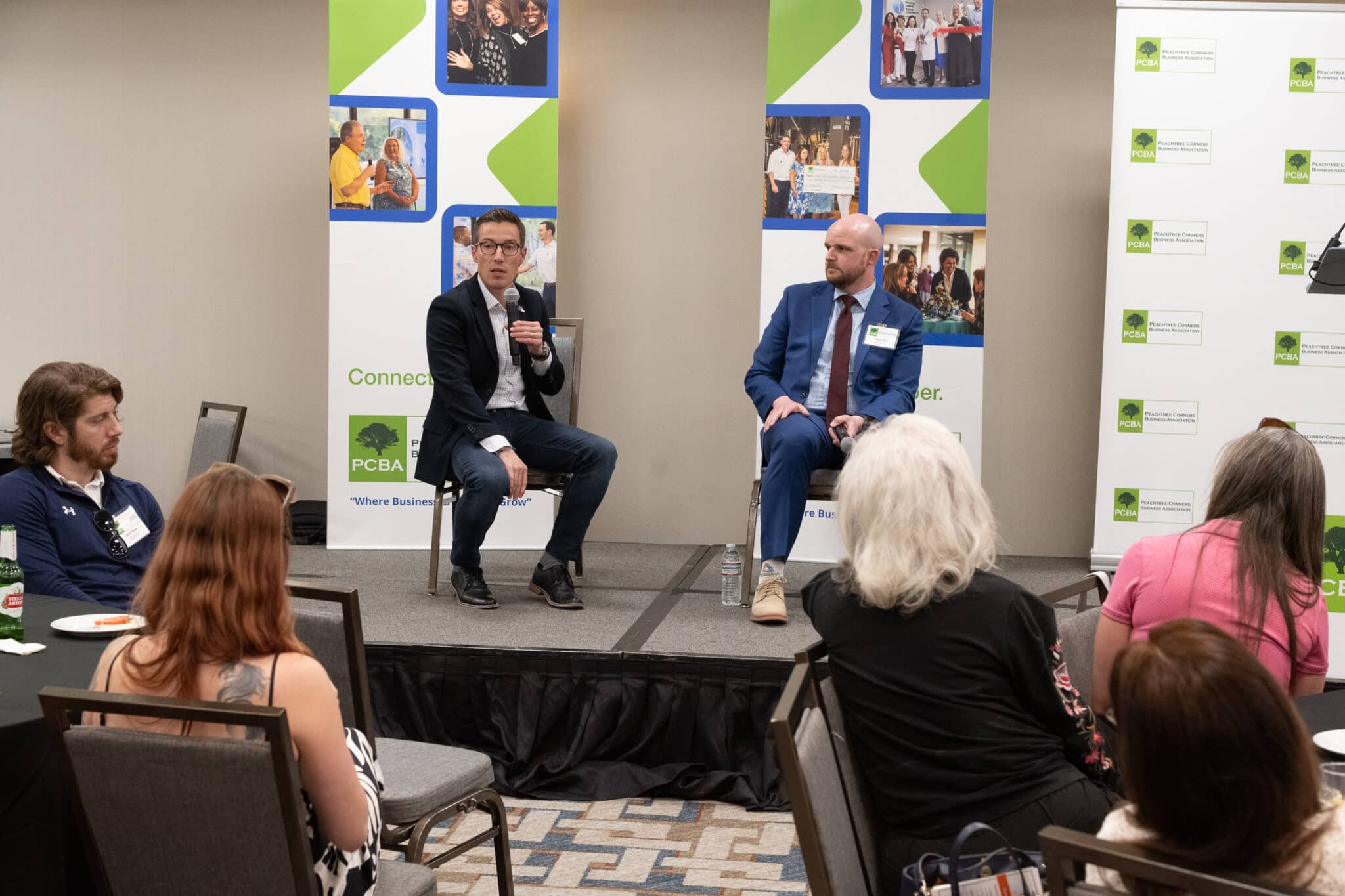
Most residents and business owners in Peachtree Corners probably think they know all about the economic development and strategic planning of Peachtree Corners, but do they really?
Peachtree Corners Business Association invited Peachtree Corners Economic Development Director Betrand Lapoire and Partnership Gwinnett Director of Economic Development Andrew Hickey to its After Hours Speaker Series on March 27 to discuss the city’s growth from a 1971 master plan to a bustling city with 42,000 inhabitants and 40,000 jobs.
Key points included the importance of business retention and expansion, with 24 projects last year creating 1,600 retained jobs, 1,600 new jobs and $250 million in new capital investment.
The Curiosity Lab, a world-class innovation center, was emphasized as a significant attraction. The city’s zoning and infrastructure plans were also discussed, focusing on balancing office and residential development to maintain a vibrant, sustainable community.
Matching jobs to residents
Although Peachtree Corners is just a teenager in terms of being an incorporated city, the foundation for this vibrant, fast-paced economic hub was laid more than 50 years ago by technology pioneer Paul Duke.
“Peachtree Corners was the first master-planned, business innovation technology park in metro Atlanta,” said Lapoire. “It was in response to the brain drain of technology with Georgia Tech graduates leaving the area.”
While the city may have a small-town feel, it’s the largest in Gwinnett County by population, but not land mass, he added.
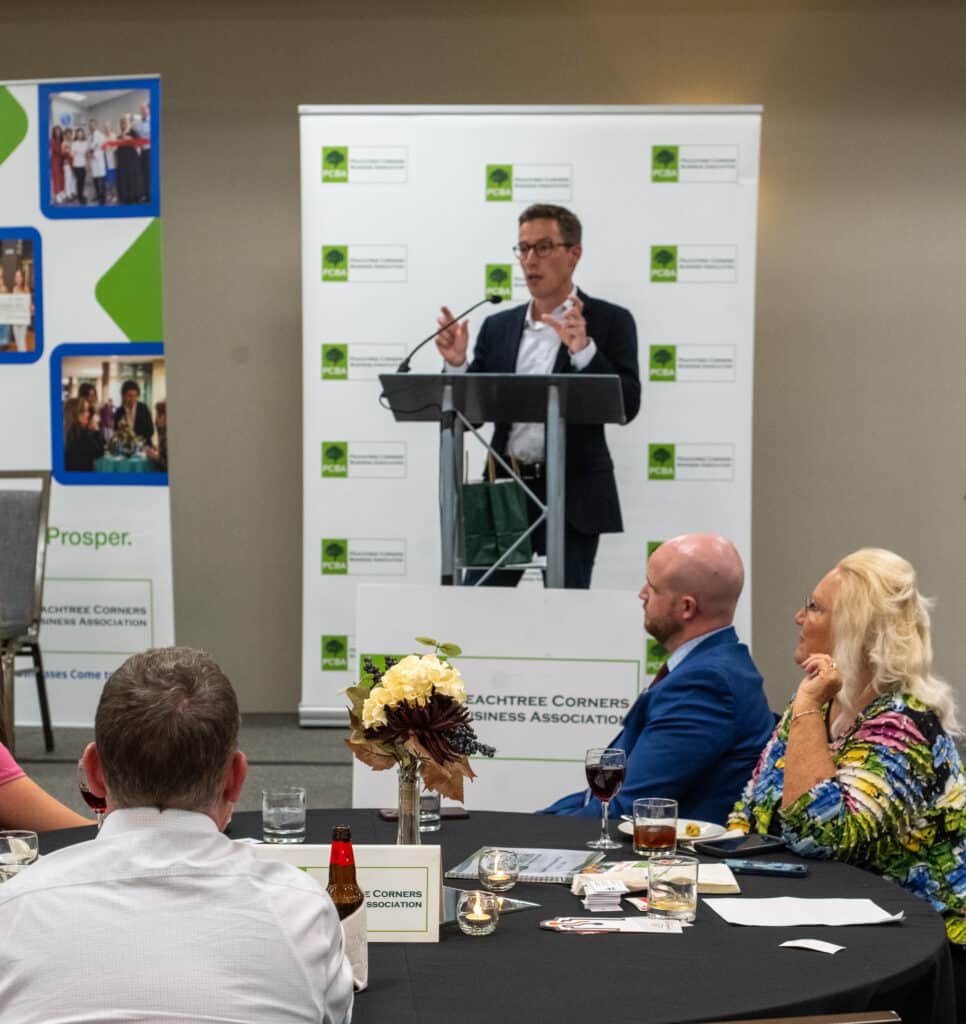
“The city started from a commercial, industrial, R&D base and then was expanded around it,” said Lapoire.
Though home to more than 42,000 residents, most of the jobs in Peachtree Corners are filled by people who live outside the city, he added.
“So we have this interesting mismatch, in a way, although not unusual,” said LaPoire. That creates traffic and transit issues. So that means that one of the solutions is to create more jobs here to fit the profile of the community.”
He presented charts that show professional services, consulting and engineering as the largest job categories. The next tier of businesses are wholesale and manufacturing.
“So we have a good mix of industry,” he said.
A five-year plan
The city has a five-year economic development plan (2023-2028) that outlines strategies for attracting and retaining businesses, with education and workforce development being key components.
Partnership Gwinnett has similar goals as Peachtree Corners, but on a larger scale.
“We are the county’s sales and marketing arm for all 17 cities now, and we receive funding from both municipal sources as well as existing businesses here — both in Gwinnett and outside of Gwinnett as well,” said Hickey.
He shared how Partnership Gwinnett is designed to drive a lot of major corporations toward doing business inside and with Gwinnett County.
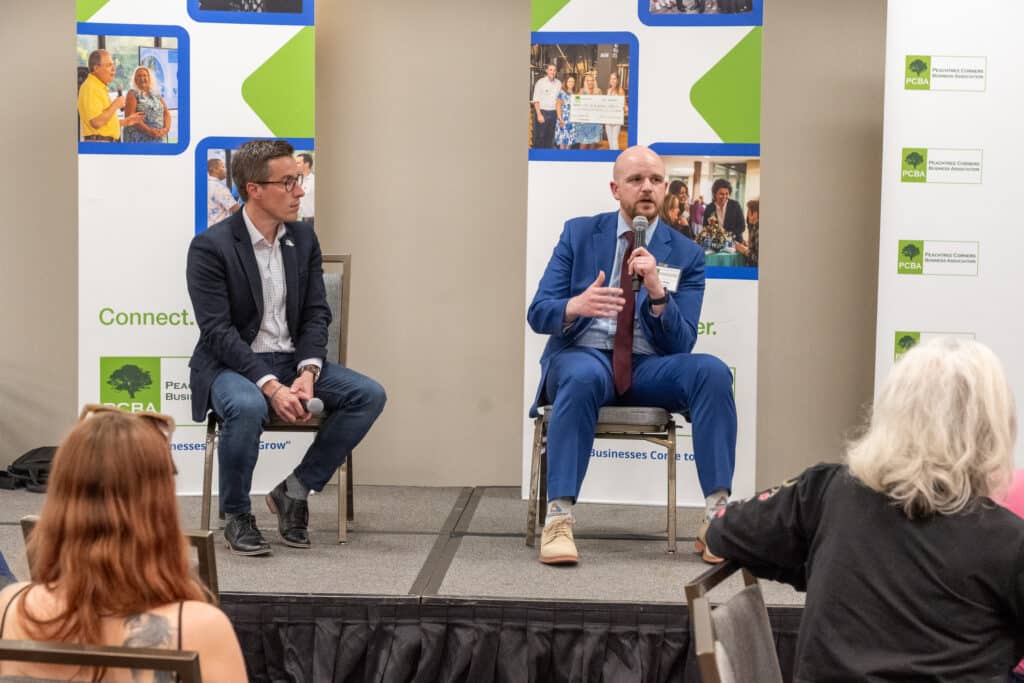
“One of the biggest things that we talk about that I’m sure it seems like most of us here, if you live here, you work here, you understand it. It’s the diversity that exists here in Gwinnett,” he said. “With a diversity index of 85, that means if we walk out of the Hilton here and we say hello to somebody, there’s an 85% chance they’re from a different ethnic or cultural background than ourselves, which to you and I may seem normal because that’s the life that we live in.”
He added that for companies, there’s a tremendous value in that, whether they have stated values, or they’re just making hiring decisions to get a wide range of candidates to fill those roles. Additionally, because of the proximity to Atlanta, Gwinnett County has a great labor draw.
Partnership Gwinnett
Partnership Gwinnett plays a significant role in recruiting businesses, expanding existing companies and developing the workforce. Hickey showed how the organization was involved with more than 24 projects last year.
“A majority of those were expansions, and that is a common thread you’ll see in economic development,” he said. “In business retention, expansion is so vital to working with our existing companies to make sure that they have the resources they need.”
He added that’s what leads to new investment and job creation in the community.
The organization also focuses on redevelopment projects, working with cities and the county to improve infrastructure and community amenities — especially strong educational institutions such Georgia Gwinnett College, Philadelphia College of Osteopathic Medicine and others.
Quality of life
In closing, both men stressed the importance of recruiting companies and developing the workforce, along with one aspect that means a lot but may not be as obvious — quality of life.
“It’s definitely evident that people like to work where they live — the whole live, work play experience,” said Hickey. “I joke that the part that people really have the most questions about, and are most excited to learn about, is new events at The Forum or Gwinnett Place Mall.”
Although they want to know what’s the next major company coming to Gwinnett, people REALLY want to know about how to spend their leisure time.
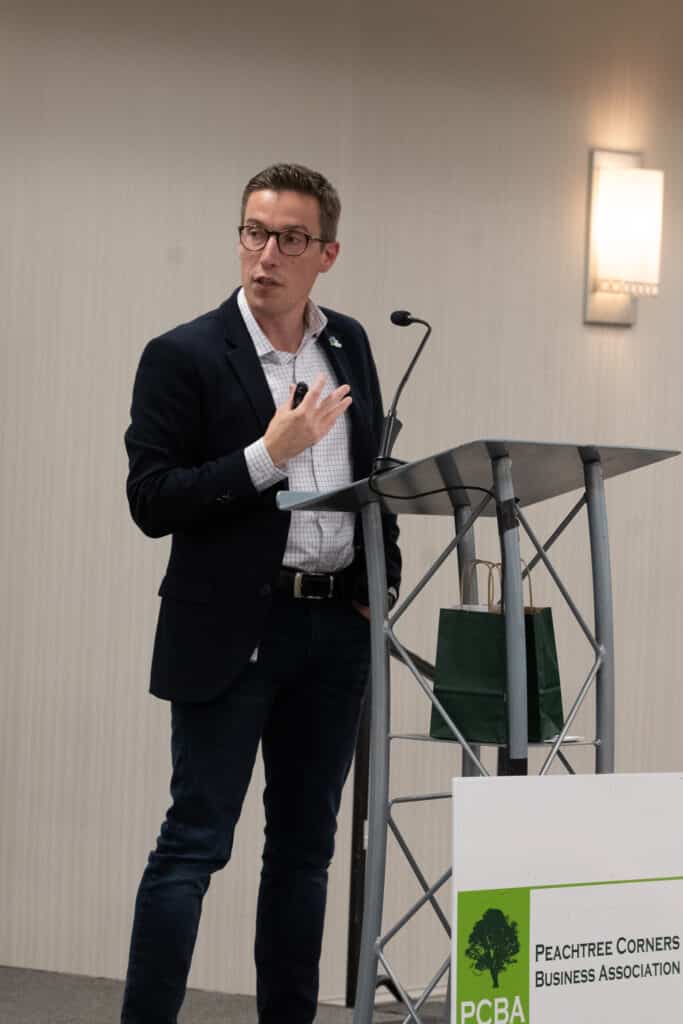
“That speaks to the importance of ensuring that we have a great community,” he said. “So at Partnership Gwinnett we work with all of our cities, and the county government as well, [on] a kind of a best-practices trip.”
He added that the peer tour allows everyone to know what the neighboring communities are doing and share the good news.
“We will take all of these elected officials, but also city staff, to different cities across the Southeast,” he said. “Last year, I believe they went to Huntsville, and have been to Greenville, Chattanooga — all cities that have done some really cool redevelopments that have taken their city to the next level. Our goal is to learn from them.”
Related
Business
Two Peachtree Corners Business Leaders Named Finalists for EY Entrepreneur Award
Published
3 weeks agoon
April 23, 2025
Ernst & Young’s Entrepreneur Of The Year celebrates ambitious entrepreneurs who are shaping the future
Ernst & Young LLP (EY US) recently announced the finalists for the prestigious Entrepreneur Of The Year 2025 Southeast Award, and two local, Peachtree Corners business leaders — David Quirk, president and CEO of DLB Associates Consulting Engineers PC and Erin Hanson, founder and CEO of Guardian Sports — made the list.
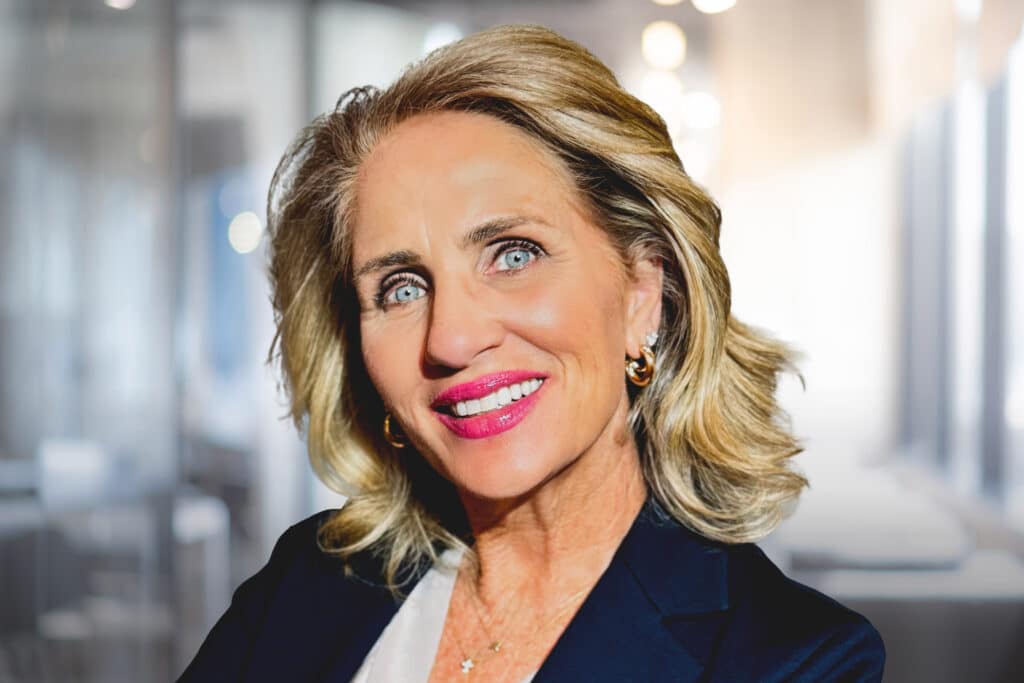
Hanson’s Guardian Sports is a family-owned company dedicated to serving athletes through safety and performance improvements in sports equipment. Major products include the Guardian Cap, PEARL ball and Guardian Infill serving the sports industry.
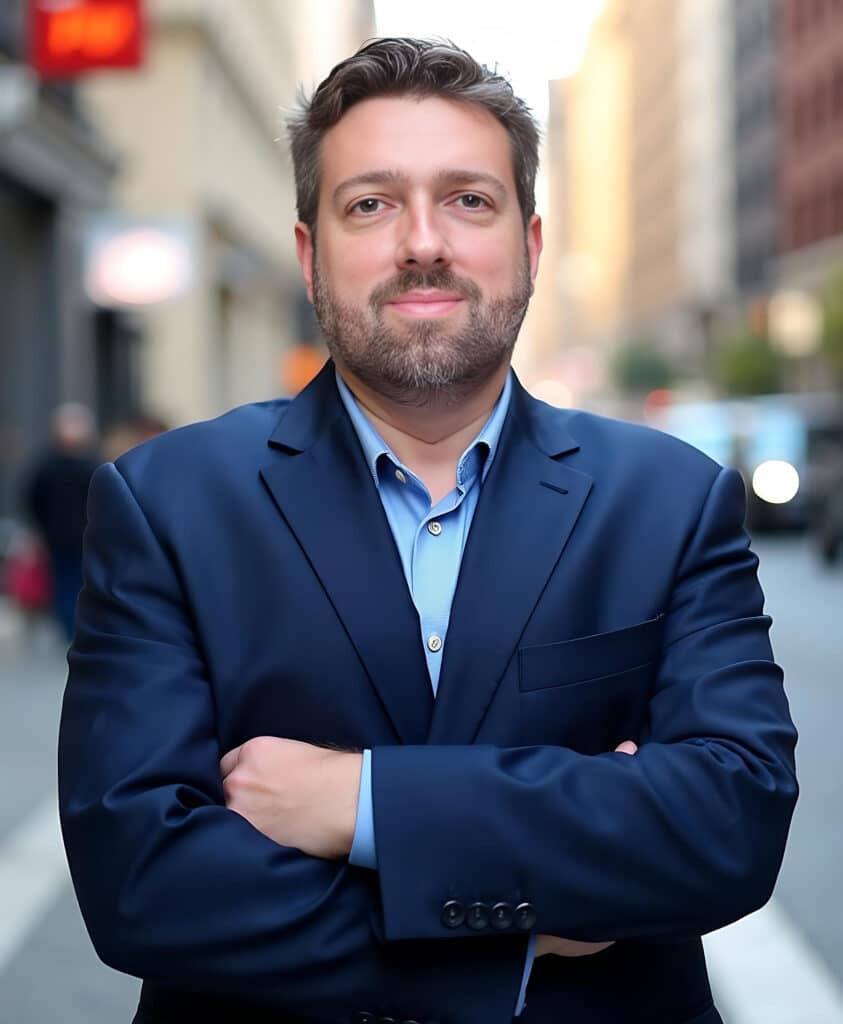
DLB Associates is a U.S.-based consulting engineering firm specializing in mission-critical and complex built environments. With more than 40 years of expertise, DLB delivers innovative, technology-driven solutions in engineering, commissioning and operations worldwide.
Celebrating entrepreneurial leaders
Now in its 40th year, Entrepreneur Of The Year recognizes the bold leaders who disrupt markets through the world’s most ground-breaking companies, revolutionizing industries and making a profound impact on communities. The program honors those entrepreneurs whose innovations shape the future and pave the way for a thriving economy and a hopeful tomorrow.
The Southeast program celebrates entrepreneurs from Alabama, Georgia, North Carolina, South Carolina and Tennessee.
An independent panel of judges selected 36 finalists for their entrepreneurial spirit, purpose, growth and lasting impact in building long-term value.
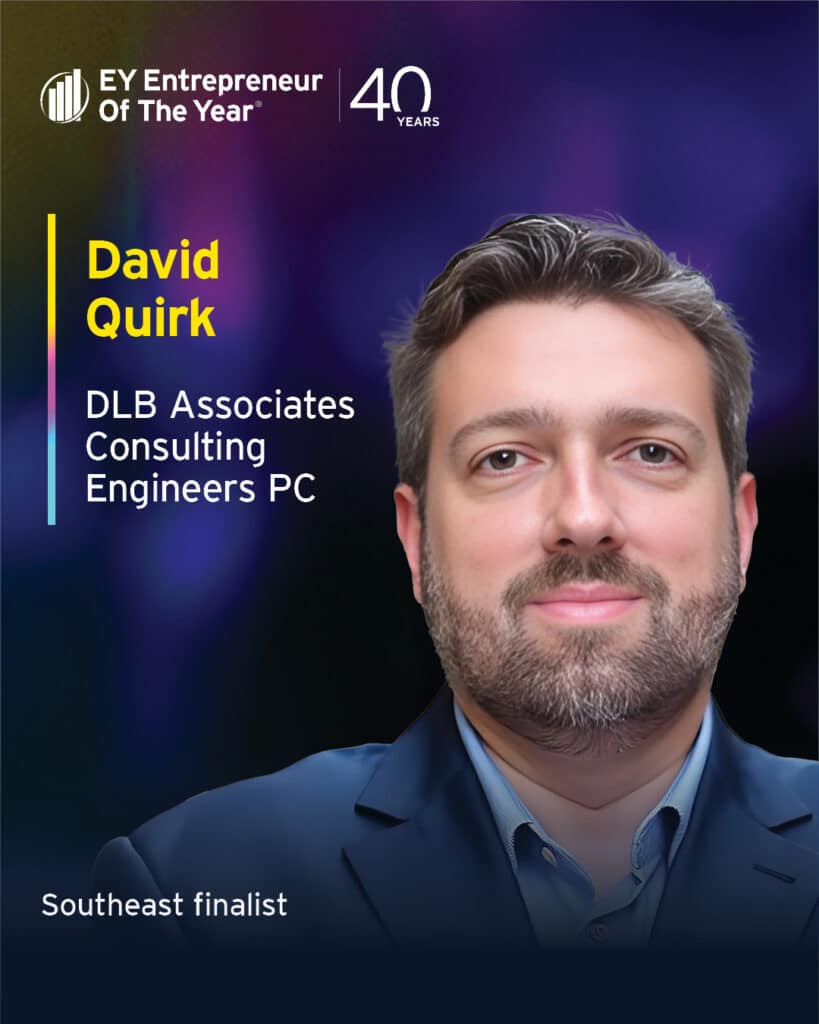

“This year’s finalists are leading examples of innovation, perseverance and resilience, illuminating paths to a brighter future for their industries and communities,” said Chevy Arnold, Entrepreneur Of The Year Southeast Program co-director.
“Their commitment to excellence transforms challenges into opportunities, inspiring us all,” added Kimberly Kicklighter, Entrepreneur Of The Year Southeast Program co-director.
Entrepreneur Of The Year honors many different types of business leaders for their ingenuity, courage and entrepreneurial spirit.
The program showcases original founders who bootstrapped their business from inception or who raised outside capital to grow their company; transformational CEOs who infused innovation into an existing organization to catapult its trajectory; and multigenerational family business leaders who reimagined a legacy business model to strengthen it for the future.
Including Quirk and Hanson, the 2025 Southeast finalists are:
- Marc Hodulich | 29029 | Atlanta, Georgia
- Damon Stafford | Alpine Intel | Charlotte, North Carolina
- Lou Hensley | Aspida | Durham, North Carolina
- Matthew Dent | Buffalo Rock Company | Birmingham, Alabama
- Melanie Little | Colonial Pipeline Company | Alpharetta, Georgia
- Will Bartholomew | D1 Training | Franklin, Tennessee
- Rene Diaz | Diaz Foods | Atlanta, Georgia
- David Quirk | DLB Associates Consulting Engineers PC | Peachtree Corners, Georgia
- Markus Scott | EyeQ Monitoring | Atlanta, Georgia
- Jon Gosier | FilmHedge | Atlanta, Georgia
- John Fitzpatrick | Force Marketing | Atlanta, Georgia
- Dr. Barry Patel | Galt Companies | Atlanta, Georgia
- Dr. Wade Smith | Galt Companies | Atlanta, Georgia
- Charles Gillespie | Gambling.com Group | Charlotte, North Carolina
- Kevin McCrystle | Gambling.com Group | Charlotte, North Carolina
- Mike Griffin | Griffin Brothers Companies | Cornelius, North Carolina
- Erin Hanson | Guardian Sports | Peachtree Corners, Georgia
- Dan Beem | Hissho Sushi | Charlotte, North Carolina
- Aaron Siegel | Home Team BBQ | Charleston, South Carolina
- Marc Murphy | Ignite Digital Services | Charleston, South Carolina
- Miller Chalk | Inglett & Stubbs, LLC | Mableton, Georgia
- Liza Rodewald | Instant Teams | Southern Pines, North Carolina
- Stephen Andresen | McClancy Foods & Flavors | Fort Mill, South Carolina
- Travis LeFever | Mission Mobile Medical Group | Greensboro, North Carolina
- Cyrus Mojdehi | Northway Homes | Charlotte, North Carolina
- Connor Ryan | NutraSky | Alpharetta, Georgia
- Fritz Owens | OTR Solutions | Roswell, Georgia
- Christopher Chuang | Relay, Inc. | Raleigh, North Carolina
- Kurt Jacobus | restor3d, Inc. | Durham, North Carolina
- Tom Kendrot | Shearwater Health | Nashville, Tennessee
- Teak Shore | Southern Lighting Source | Cumberland, Georgia
- Cindy Eckert | Sprout Pharmaceuticals | Raleigh, North Carolina
- Bryan Moore | TalkShopLive Inc. | Nashville, Tennessee
- Tina Moore | TalkShopLive Inc. | Nashville, Tennessee
- Igor Marinelli | Tractian | Atlanta, Georgia
- Joan Butters | Xsolis | Franklin, Tennessee
You can learn more about the finalists at ey.com/en_us/entrepreneur-of-the-year-us/southeast/winners-finalists.
Regional award winners will be announced on June 25 during a special celebration. The winners will then be considered by the national independent panel of judges for the Entrepreneur Of The Year National Awards, which will be presented in November at the annual Strategic Growth Forum®, one of the nation’s most prestigious gatherings of high-growth, market-leading companies.

About Entrepreneur Of The Year
Founded in 1986, Entrepreneur Of The Year has celebrated more than 11,000 ambitious visionaries who are leading successful, dynamic businesses in the U.S., and it has since expanded to nearly 60 countries globally.
The U.S. program consists of 17 regional programs whose panels of independent judges select the regional award winners every June. Those winners compete for national recognition at the Strategic Growth Forum® in November where national finalists and award winners are announced.
The overall national winner represents the U.S. at the EY World Entrepreneur Of The Year™ competition.
For more about the award, visit ey.com/us/eoy.
Related
Business
SCB Construction Group Partners with CGA Reps on New Peachtree Corners HQ
Published
1 month agoon
April 15, 2025
SCB Construction Group, freshly rebranded from SteelCo, secures construction project with CGA Reps for new office HQ in Peachtree Corners
SCB Construction Group has announced a strategic partnership with CGA Reps to build a new office headquarters in Peachtree Corners. The project, encompassing approximately 26,000 square feet of innovative workspace, marks a significant milestone in advancing CGA Reps’ corporate vision while showcasing SBA Construction Group’s commitment to delivering transformative construction solutions.
In collaboration with Oakley Real Estate Partners — serving as developers of the project on behalf of CGA Reps — this venture reflects a united effort to bring cutting-edge design (from Smallwood architecture firm) and operational excellence to the commercial kitchen equipment industry.
The announcement follows several high-profile projects for SCB Construction Group in 2024, including a 72,500-square-foot manufacturing center and headquarters for Process Equipment & Controls, an impressive interior build-out for Courtesy Ford Conyers’ commercial service center and the Phase 1 completion for StoreEase Loganville — recently honored as a 2024 Smart Facility of the Year by Modern Storage Media.
A bold new chapter for CGA Reps
The new 25,890-square-foot headquarters is designed to be more than just a workplace — it is envisioned as an inspiring environment that serves both client engagements and employee creativity. CGA Reps is recognized as an industry expert in commercial kitchen equipment, representing leading manufacturers, warehousing, distributing and installing everything from fryers to commercial walk-in freezers.

The facility’s design reflects this expertise, featuring a dedicated approximately 9,000-square-foot showroom kitchen that will host equipment demonstrations, tradeshows and webinars. This dynamic space will allow CGA Reps to showcase its comprehensive product range and provide clients with hands-on experiences of the latest commercial kitchen innovations.
A standout feature of the project is its innovative approach to stormwater management. With the site comprising only three acres, sufficient space for a traditional detention pond does not exist. To overcome this challenge, the design includes an underground detention system located beneath the truck court to efficiently handle all stormwater runoff.
This solution not only maximizes the use of the available land but also reinforces CGA Reps’ commitment to sustainable practices.
“We are excited to embark on this project with CGA Reps,” said Jay Bailey, CEO of SCB Construction Group. “This partnership underscores our commitment to customer excellence in design and construction, and it is a testament to the trust our clients place in our ability to deliver projects that not only meet but exceed expectations.”
Delivering excellence through proven expertise
SCB Construction Group’s track record in 2024 has been nothing short of remarkable. Earlier in the year, the company completed a 72,500 square foot manufacturing center for Process Equipment & Controls, integrating office space within a dynamic production facility.
This project was celebrated for its innovative design that balanced operational efficiency with a modern aesthetic, utilizing IMP panels to mimic tilt-up concrete, setting new standards for manufacturing environments.
Similarly, the interior build-out for Courtesy Ford Conyers’ commercial service center demonstrated SCB Construction Group’s ability to transform conventional spaces into functional and attractive environments that cater to both customer and staff needs.
The company’s commitment to quality and precision was again evident in the successful Phase 1 completion for StoreEase Loganville. This project, which recently earned the distinction of a 2024 Smart Facility of the Year by Modern Storage Media, highlights SCB Construction Group’s forward-thinking approach to construction and design, incorporating smart technologies and design that enhance sustainability and operational efficiency.
A rebranding that reflects a vision for the future
In a move that signals its evolution and growth, SCB Construction Group has recently rebranded from its former identity, SteelCo Buildings, as it spins off its construction division. This strategic rebranding is not merely cosmetic — it represents a renewed commitment to capabilities, credibility and client-focused service.
The refreshed brand is anchored by a new tagline “Deep Expertise, High Expectations” and a clear brand promise that communicates the company’s mission: to craft exceptional construction experiences based on precision, innovation and trust.
“Our rebranding is about more than just a new name or logo; it’s a renewed promise to our clients and communities,” explained Robert Lee, marketing director at SCB Construction Group. “We believe that our updated brand identity, including our invigorated tagline and mission statement, encapsulates our dedication to pushing the boundaries of design and construction. It reflects our commitment to creating spaces that are as inspiring as they are functional.”
Transforming spaces to inspire and connect
The new headquarters for CGA Reps is expected to become a landmark facility in Peachtree Corners. Beyond its impressive architectural design and advanced construction techniques, the building is planned as a hub for innovation and collaboration.
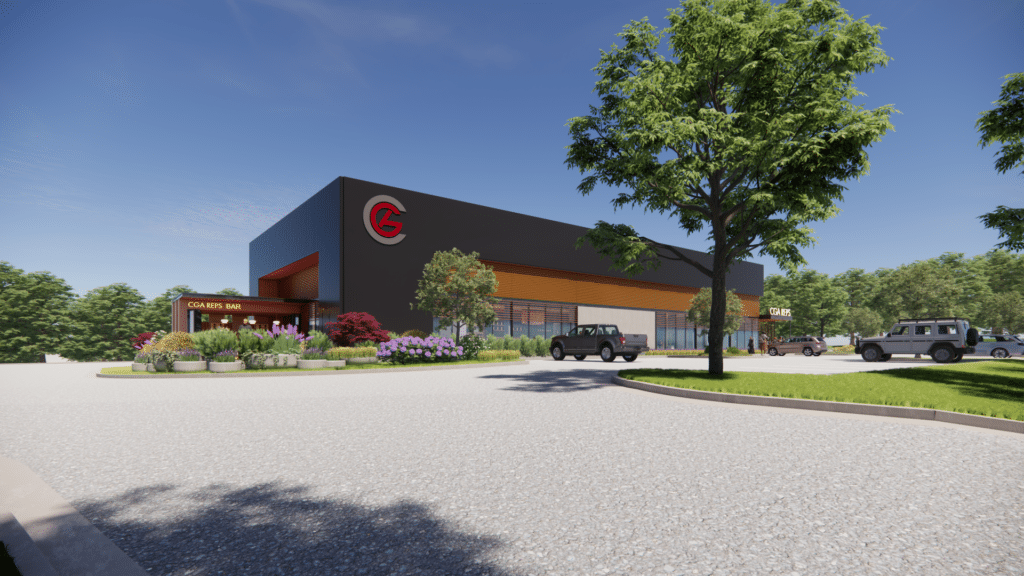
The interior build-out will include dynamic client reception areas, interactive meeting rooms, and dedicated spaces designed to foster creativity and teamwork among employees. The layout is crafted to ensure that every area of the facility contributes to a productive and inspiring work environment.
“By investing in this state-of-the-art facility, CGA Reps is making a strong statement about the future of work,” said Bryan Young, VP of construction at SCB Construction Group. “Our team is dedicated to designing and building spaces that not only serve the immediate needs of our clients but also create environments that motivate and inspire. The new headquarters will be a testament to that vision.”
Looking ahead
The partnership between SCB Construction Group and CGA Reps marks a significant step forward for both companies. As SCB Construction Group continues to build on its legacy of excellence and innovation, this project is poised to set a new benchmark for modern office headquarters design in the region.
With a strategic focus on creating spaces that inspire, connect and drive success, the future looks promising for both SCB Construction Group and its esteemed partner, CGA Reps.
For more information on the new headquarters project or to learn more about SCB Construction Group’s portfolio, visit scbcg.com.
Related
Read the Digital Edition
Subscribe
Keep Up With Peachtree Corners News
Join our mailing list to receive the latest news and updates from our team.
You have Successfully Subscribed!

Digital Edition

Official City Merchandise Line Debuts This Saturday at Town Green

Paul Duke STEM High School Student Earns CGO Scholarship

World Blood Donor Day Starts Here: Theo’s Miracle, Katherine’s Mission [Podcast]

Executive Function: A Tribute to Working Moms

Peachtree Corners Grows Business Opportunities Through Economic Development

Peachtree Corners Hosts Discussion About the Future of Local Policing

Simpson Elementary Marks Exceptional Children’s Week

Atlanta’s Dog Howl-O-Ween Festival Moving to Peachtree Corners for 2025

D1 Training Brings New Fitness Concept to Peachtree Corners

Peachtree Corners Hosts Discussion About the Future of Local Policing

City of Peachtree Corners Awarded Certificate of Achievement From GFOA for Seventh Straight Year

Simpson Elementary Marks Exceptional Children’s Week

Executive Function: A Tribute to Working Moms

Official City Merchandise Line Debuts This Saturday at Town Green

Peachtree Corners Grows Business Opportunities Through Economic Development

Light up the Corners [Video]

Capitalist Sage: Business Leadership in Your Community [Podcast]

Cliff Bramble: A Culinary Adventure through Italy

Top 10 Brunch Places in Gwinnett County

A Hunger for Hospitality

THE CORNERS EPISODE 3 – BLAXICAN PART 1

Top 10 Indoor Things To Do This Winter

The ED Hour: What it takes to Remove Barriers from Education







